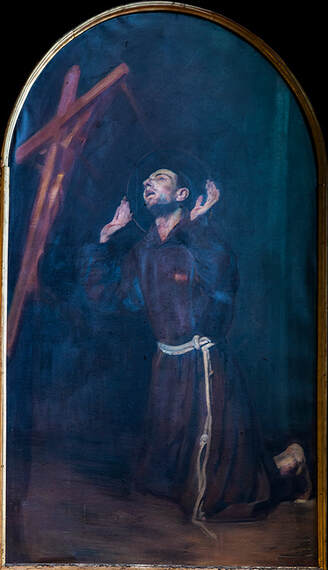
In this post, I will consider the Canticle of the Sun and, in turn relatedness, that is, music education that reduces waste.
The primary poem of the Franciscan spiritual tradition is the Canticle of the Sun, written by St. Francis in 1224 (near the end of his life) based on Psalm 148. In this poem, Francis praises God through his created family: Brother Sun, Sister Moon, Brother Wind, Sister Water, Brother Fire, Sister Mother Earth, and Sister Death. Francis saw himself as a troubadour, but singing love songs to and in relation to God. God the creator of nature. Early bands of Franciscan friars were heard singing the canticle as they roamed from town to town in Italy and beyond (Francis famously even traveled to Egypt to try to end the Fifth Crusade peacefully).
Sister Ilia Delio, OSF, writes: "As the final song of his life, the Canticle reveals to us Francis's deep reflection on the mystery of the Incarnation. For Francis it is the Incarnation that gives insight into the goodness of the created world as the sacrament of God. Creation and Incarnation are intimately united in such a way that we cannot truly grasp our relationship to creation apart from understanding our relationship to Jesus Christ. Francis's relationship to Christ did not follow a narrow path but grew to the widest possible horizon. The deeper he grew in relationship with Christ, the more he found himself intimately related to the things of creation as brother. We might say that his relationship with Christ changed his internal focus. He developed a deeper consciousness of "relatedness" and came to realize he was related to all things no matter how small, because everything shared in the primordial goodness of God, the source of his own life. Francis discovered that he was part of the cosmic family of creation."
The canticle has been an inspiration for composers. The 1919 hymn, All Creatures of Our God and King was inspired by Francis's canticle. It in turn has been arranged for public school hymnbooks, and by Western composers, such as Ralph Vaughan Williams and John Rutter.
Amy Beach wrote a cantata based on the canticle in 1928. Though rooted in the Romantic tradition, Beach treats the melody and harmonies more expressionistically. Listen to the audio here.
More recently, Russian compoer Sofia Gubaidulina wrote a choral work, with cello, on the Canticle of the Sun: Sonnengeang. Gubaidulina's canticle is set in four sections:
- Glorification of the Creator, and His Creations - the Sun and the Moon
- Glorification of the Creator, the Maker of the four elements: air, water, fire and earth
- Glorification of life
- Glorification of death
It seems, at least on some level, Waste is at the root of the ecological problems with face in the 21st Century. We waste oil and coal, leading to climate change. We waste food, which also impacts climate change. We waste electronics, and e-waste has become the principal contributor to toxic waste, impacting the Global South critically. And our economy wastes worker's lives. Could we even imagine an economy with 100% employment? Where people could do meaningful work to support their families? Where meaningless jobs were eliminated, and meaningful work highly regarded and made available for all to do? We don't waste our kin! We help them flourish.
When I read or listen to the Canticle of the Sun, in all of its forms, I long for a society that reduces waste, in all of its forms. Can we begin doing this in music education? The homeless are my sisters. The lead-poisoned children are my brothers. And non-human animals are my cousins.
 RSS Feed
RSS Feed
